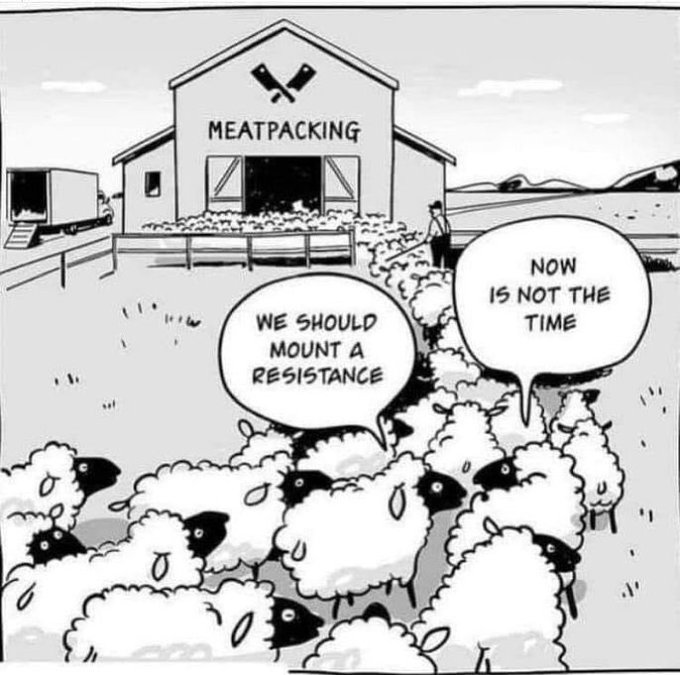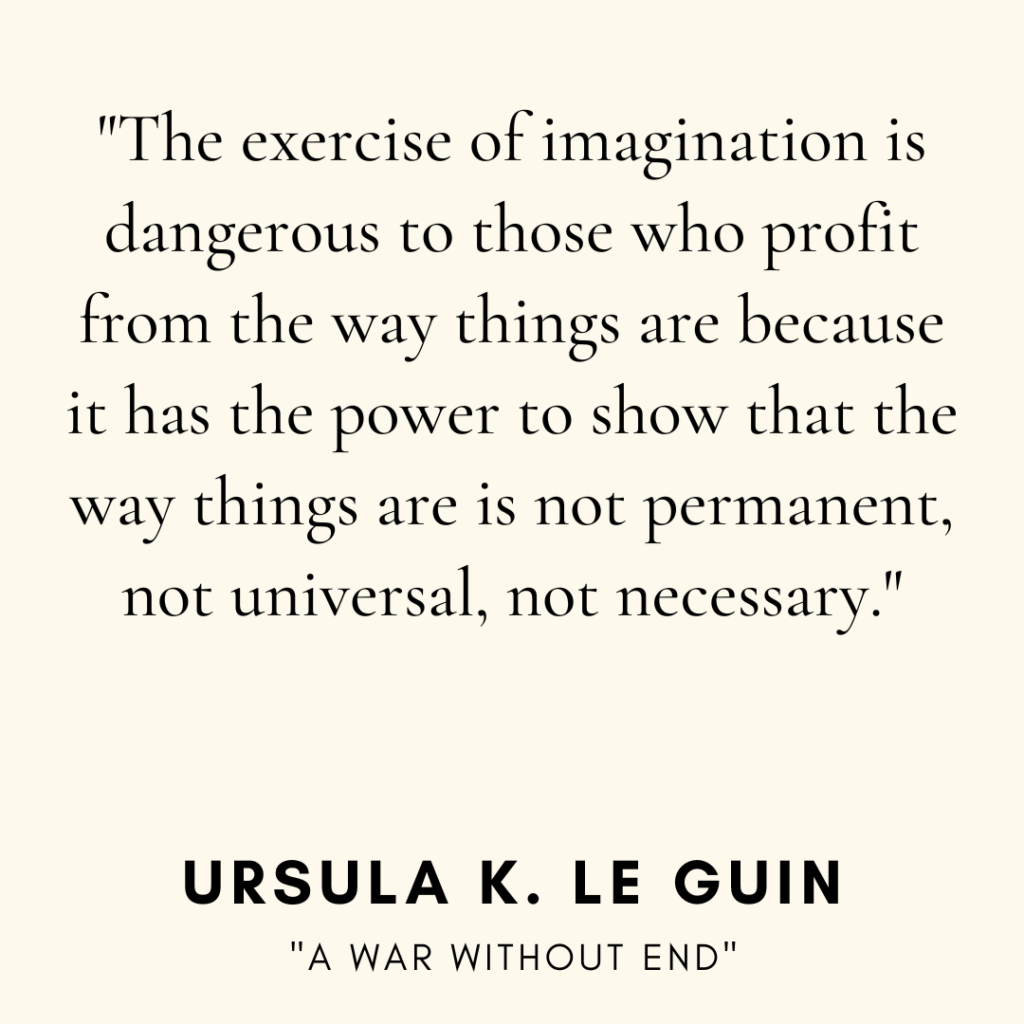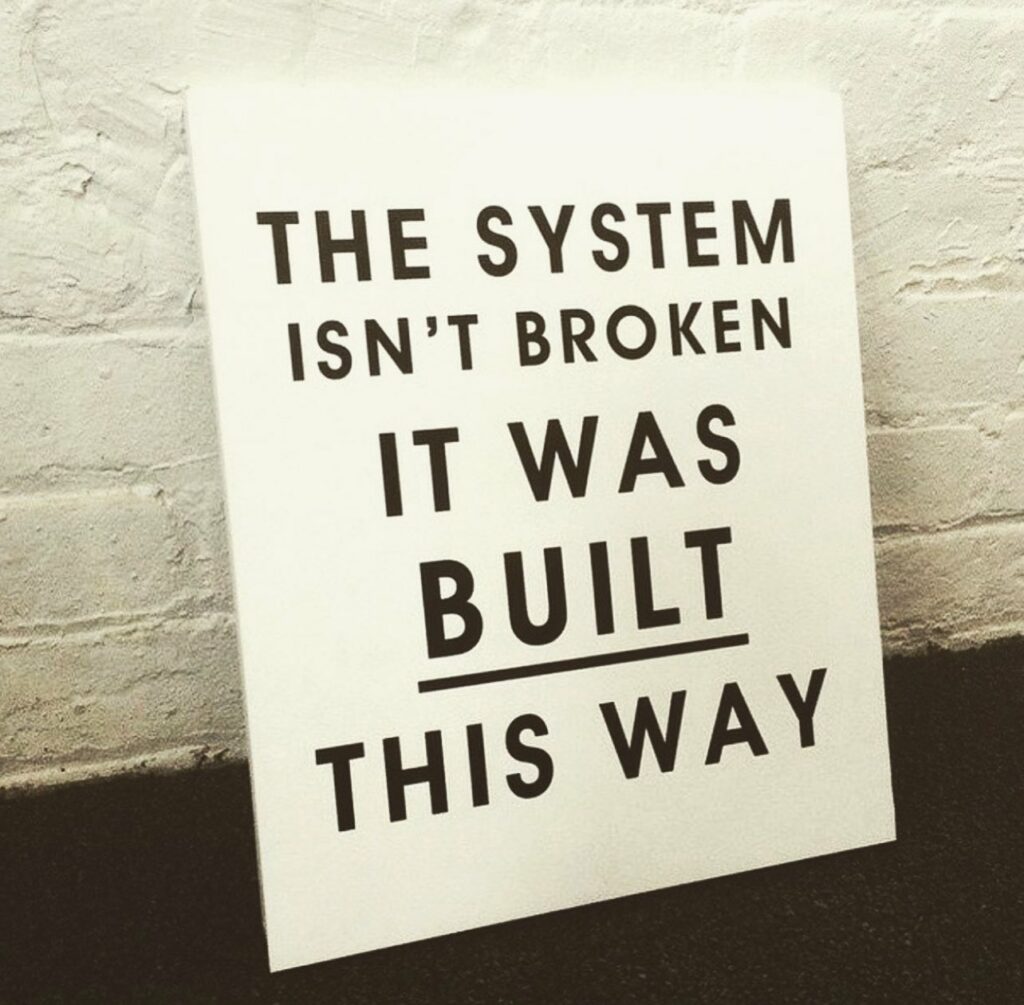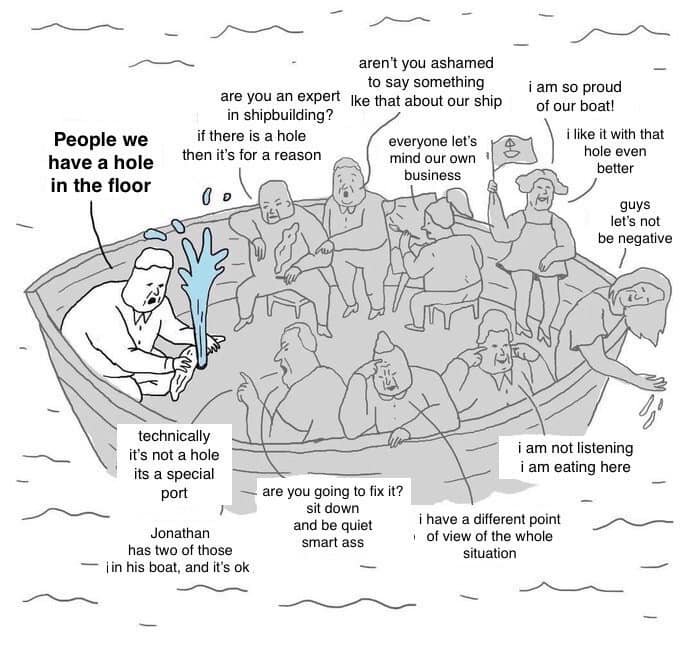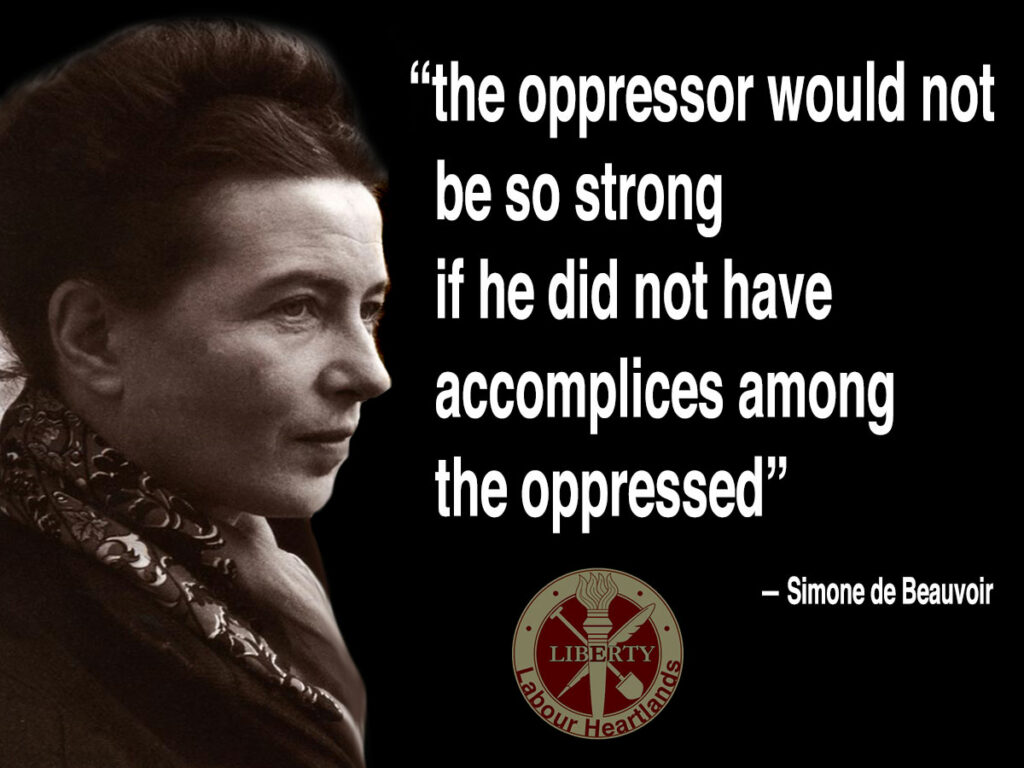With the tyranny of the structureless path, every attempt to share the commons decays into a fog of personalities, cliques, and unspoken power. What needs composting here is that, at best, you end up with a smiling violent man as the backstop of governance.
Without mediating structures, what emerges is not freedom but hidden hierarchy. “Smiling violence” – the agreeable man (or clique) who insists they’re just holding things together – quietly blocks challenge, manipulates process, and reserves the final say. If you’re not paying attention, and can’t move away, you wake to find yourself living in #feudalism, with its ever-present threat of personal violence lurking behind the smile.
This is how “horizontal” spaces rot. They confuse the absence of shared structures with openness, when in fact it is poisoned soil: domination by those most willing to coerce, block, or flatter. Without functioning myths and traditions, shared trust, and open processes, what grows is not commons but personal power, one person’s will, or a small group’s grip.
The smiling violent man is not an accident. He is the inevitable product of structurelessness:
Without flows of accountability, you get bottlenecks of control.
Without mediating trust systems, you get gatekeepers posing as “protectors.”
Without a backbone, you get a backstop, a hard edge of coercion dressed in kindness.
The result: commons replaced by fiefdoms, trust replaced by muscle, care replaced by the mask of “caring the most.” Once that happens, the commons are no longer common, they are held hostage.
When I see this again and again, I sometimes say: “grow a backbone.” But this rarely lands well. So let’s pause and ask what backbone really means in social settings:
- Structure / Stability: Like a spine holding the body upright, a social backbone is the framework that keeps everything from collapsing into mush. In #OMN terms: the #5F framework is the backbone, UX, UI, and culture all grow around it.
- Courage / Integrity: To “have backbone” means to stand firm under pressure. For movements, this means holding the line when mainstreaming forces, fashionistas, or gatekeepers push back. Backbone is refusing co-option, staying rooted in trust.
- Invisible but Essential: The backbone is not the face, not the style. It’s the quiet strength – shared trust and open processes – that allows everything else to move. Often invisible, but without it, nothing functions.
A social backbone, then, is the shared trust + open processes that holds a community upright against both internal decay and external capture. By contrast, on the progressive path the #fashionistas build style without backbone (pretty, but collapses quickly), and the #geekproblem builds bone without flesh (rigid, alienating).

Metaphors work when people use them, this might become convoluted 🙂
The comments brought up some points -When we talk about composting bad process, the stink comes from rot sealed off from air, the smiling violence holding the heap down, suffocating flows. The shovel (#OMN) exists to turn the pile, let oxygen in, keep the ecosystem alive. But the real work is done not by the shoveler but by the hidden actors: the invertebrates, fungi, and bacteria. The slow, distributed, many-voiced work of transforming mess into fertile ground. That’s us, when we build trust-based flow networks.
So let’s think about this backbone metaphor more. In biology, spines give structure, but ecosystems are held up just as much by invisible scaffolding: fungal networks, soil webs, rhizomes. In tech, the Internet “backbone” was designed with redundancy, no single node decisive, everything routing around damage. That’s closer to an exoskeleton or even a rhizome than to a rigid spine: strength through distributed paths, not central authority.
Back to the subject of tech #Mainstreaming likes to tell the story that the Internet came from the Pentagon, born a war machine. There’s truth there. But there’s also the buried history (see APC’s work) of people shaping it into a commons, a tool for organizing, a network not of command but of association. That history is the “invertebrate” path, fragile, messy, hard to see, but alive. And in truth, tech is ideology embodied: the people who built the early net built something that could survive without the state, routing around command and control. That’s a good definition of anarchy.
So the wider metaphor isn’t just backbone, but ecosystem: A scaffold that gives form (#5F of the #OMN as the bones). Shovels to aerate and mediate (#OGB as the process tools). Invertebrates and fungi (the hidden actors – users, trust webs, communities). Rhizomes and redundancy (the net’s anarchic, native design).
The danger comes when we forget this, and mistake surface style for soil depth. The #fashionistas offer flowers without roots, the #geekproblem offers bone without flesh. The commons require both – backbone and compost, scaffold and ecosystem. Otherwise, the heap stinks and collapses into fiefdoms.



